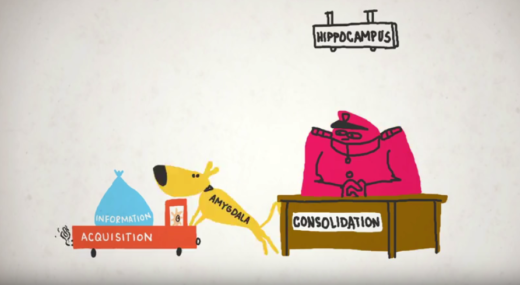We've all had the experience of studying hard for a test, believing we know the information, and then sitting down in the testing room only to draw a blank. Why does that happen?
In this TED-Ed video, Elizabeth Cox explains there are many kinds of stress and many kinds of memory, but short term stress can affect a person's ability to recall facts. There are three basic steps to learning new information: acquisition, consolidation and retrieval. Moderate stress related to the memory task itself can actually have a positive affect on the acquisition and consolidation phases. The brain releases corticosteriods when stressed, which prompt the amygdala to tell the hippocampus to consolidate a memory. The stress signals to the brain that the information is worth remembering, but other emotions can be equally helpful to encode memories.
Problems arise when a person experiences chronic stress. When the brain is consistently bathed in corticosteroids it damages the hippocampus, inhibiting its ability to form memories. And, when a person experiences stress the brain inhibits the prefrontal cortex in order to allow its fight, flight or freeze response to kick in. The prefrontal cortex is responsible for retrieving memories, which is why we draw a blank during a stressful test.
However, there are ways to mitigate stressful situations. When studying, emulate the conditions of the test by doing practice problems on a timer, or sitting at a desk. That way those conditions won't be so stressful during the test. Exercise also helps reduce anxiety and increase well-being. Lastly, take a few deep breathes before beginning to calm the fight, flight or freeze response.


